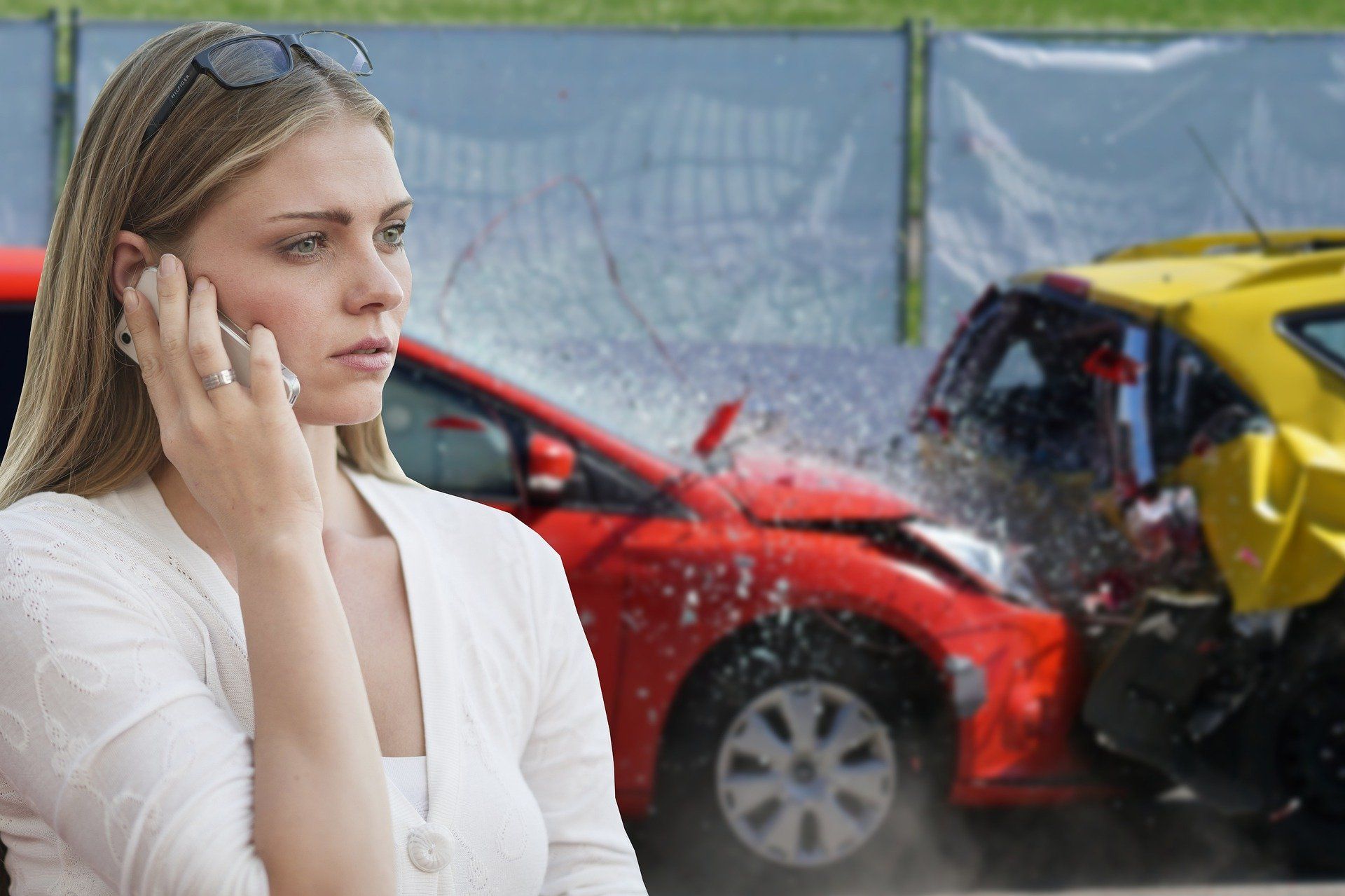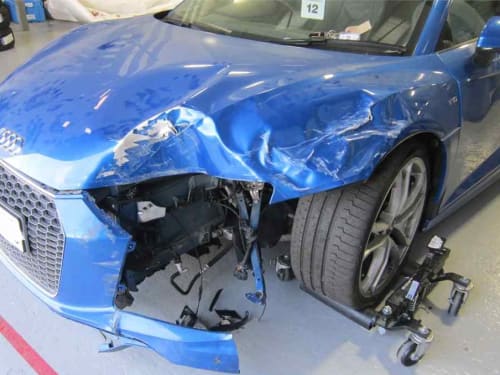Whether it is a minor bump or a serious accident, it's a split-second that completely disorientates. When you experience an accident, emotions ride high, and we can lose ourselves. If you do not know what to do in the immediate aftermath of an accident, let’s show you what you need to do in an accident, but also the steps you need to take when an accident occurred that wasn't your fault.
What You Should Do on the Scene
If you are able, pull the vehicle over safely.
- Stop the car, switch your engine off, and turn on your hazard warning lights. This will warn other road users.
- Check everybody in your vehicle is okay. Look for any injuries to you or your passengers, but also make sure if there are any injuries with others involved. If anybody is injured, you need to dial 999 and ask for the police.
- If it is safe to do so, get all passengers out of the vehicle.
- You need to exchange the name, address, contact details, registration, as well as personal details and insurance information with the other party

Dealing With the Emotions at the Scene
When you experience a car accident, emotions can fly. It's important to stay as calm as possible. If someone has collided with you, do not lose your temper and resort to arguing. Any arguments could make a tense situation even worse. During the exchange with the other person, it is important to be aware of what you say. You should focus on getting the important details from the other person. But when we are in the moment, the temptation could be to hurl anger and abuse, which makes the situation worse. Or you might be the victim, but still offer apologies or admit some form of responsibility.
Even if you think you were partially at fault, saying anything that may imply you are responsible could make things difficult further down the line. If you apologize, this can be seen as an admission of guilt and could cost you the right to claim any compensation if you were not at fault.

Dealing With the Insurance Process
The first thing to consider before you call your insurer is the extent of the damage incurred by you or the other party. If you are wondering whether to tell your insurer about the accident, but are worried about losing your no claims bonus, you should still inform the insurer. You can preserve your no claims bonus, but you will have to pay for the repairs yourself or recover them from the other driver. Sometimes, losing your no claims bonus is more than the cost of the repairs, but when you have been in an accident, you need to send your insurer a letter or email explaining what has happened and make it clear that this is “for information,” and that you don't need to make a claim. This will make sure that your insurer does not settle your claim with the other party's insurance without you knowing.
What Is the Time Frame to Inform the Insurance Company?
It is a condition of your insurance policy to report the accident to your insurance company within a reasonable timeframe. A reasonable timeframe is different depending on your policy. It is vital for you to check the terms and conditions of the policy, but if it doesn't say, you should do this as soon as possible. If you do not do this, your insurance company may refuse to cover you in the future.
The Right to Request Insurance Details
Even if there was no personal injury, if you hold someone responsible, you have the right to request insurance details. While this request doesn't need to be made at the time of the accident, if they fail to provide insurance details, this is classed as an offence.
If you need to make an insurance claim and the accident wasn't your fault, there are two different approaches you can use. You can use a credit hire company, which pays for the cost of hiring another car for you while yours is being fixed, cover the cost of the repairs, and claims the expenses from the other driver’s insurance. But your insurer will need to know about the accident, even if you do not claim. The other option is to get the insurer to pay the excess. You can pay the excess yourself and pursue the insurer of the other driver to reimburse the cost after the claim has settled.
Sometimes the claim can go on, and the issue of liability can cause long-standing issues, especially if you sustained an injury. If the other driver admits liability, you are entitled to compensation, but it is common for people to declare things that are incorrect, especially if the driver admits liability but retracts this later. This may result in you taking the issue to the driver’s insurance company or, in rare circumstances, may end up in a small claims court.
When you are in an accident that wasn't your fault, you should always behave like you are intending to pursue a claim, even if you do not actually want to, as this sets the process in motion if you decide you want to claim later on, especially if you've experienced any injuries. Because injuries arising from a car accident, such as to the neck or back may not become apparent until days or weeks after the accident.
Getting the Car Fixed
Whether your car has suffered a minor scrape or worse, you may want to get it repaired as quickly as possible. Most car insurance providers will offer to have your vehicle fixed by an approved repairer. However, if you take up the offer, this is the insurer’s own network of garages that they work with. You do not have to go with who they recommend. It is your legal right to choose who repairs your car, even if you're making a claim on it. This is down to legislation known as the Block Exemption Regulation. This means that the insurer cannot force you to use their choice of repairers, but they will still payout if the claim is accepted.
The best thing you can do is choose a garage that you know and trust to do a good job. This will also help if the insurance company’s preferred garages are far away and you need to travel. If you want to use your own repairer, check your policy for any additional excesses or conditions. You can get a quote from your chosen repairer and send it to your insurer, and if your insurer agrees to the cost of the work, you have to be clear if you are going to pay the garage and claim the money back or if the insurer pays it directly.
When you are in an accident that wasn't your fault, it is an emotionally fraught time, but there can be a lot of things you need to do afterwards. While 24,470 people killed or seriously injured in road traffic accidents reported to the police for the year ending June 2020 is down compared to the previous year but the number is still way too high. When anybody experiences an accident, it is never something we expect to happen to us but is something that can be fixed.

